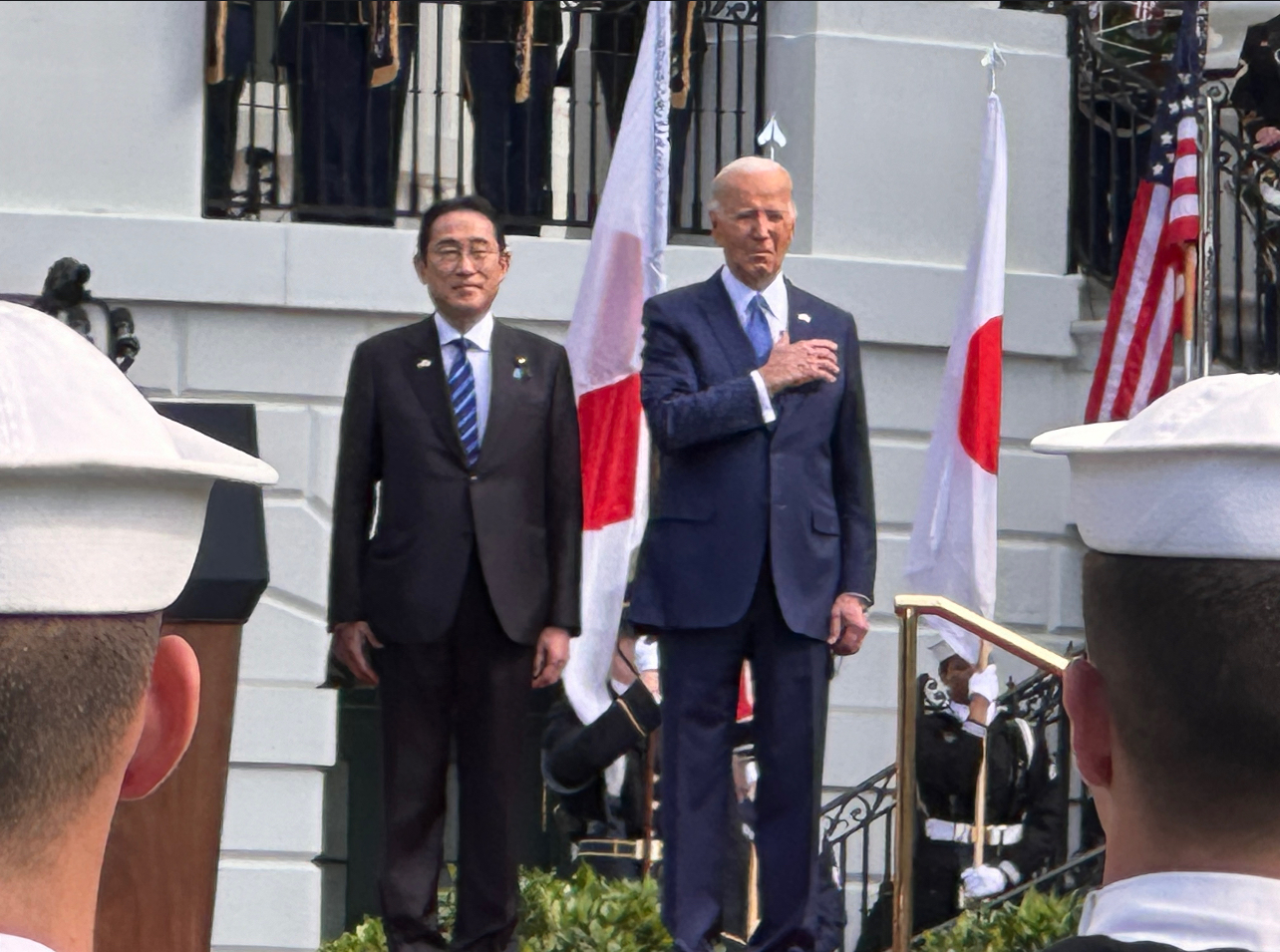Headline News
Strengthening Bonds: A Closer Look at the U.S.-Japan Alliance
Article and Photo By Dr. Jerome Dorn
In a momentous event, President Biden welcomed Prime Minister Kishida of Japan for an Official Visit with State Dinner, marking a significant milestone in the enduring friendship between the United States and Japan.
This gathering not only underscores the deep historical ties between the two nations but also heralds a new era of collaboration and mutual prosperity.
A Shared Vision for the Future: The Official Visit with State Dinner served as a platform for both leaders to reaffirm their commitment to strengthening the U.S.-Japan Alliance across various spheres, including defense and security, technology, economic cooperation, and people-to-people ties. The bilateral cooperation outlined during the visit aims to elevate the Alliance to new heights, reflecting a shared vision for a free and open Indo-Pacific region.Defense and
Security Cooperation: A Cornerstone of Partnership. At the heart of the Alliance lies robust defense and security cooperation, which forms the cornerstone of regional peace and stability. Both countries pledged to enhance their collaboration in this domain, focusing on upgrading Alliance command and control frameworks, exploring advanced capabilities cooperation under the AUKUS Pillar II, and bolstering regional networked security.Advanced
Capabilities and Technological InnovationAcknowledging Japan’s strengths and the close partnerships with AUKUS countries, both nations are considering cooperation on advanced capability projects. Additionally, plans to deepen defense industry cooperation, including co-development and co-production of cutting-edge technologies, underscore the commitment to leveraging mutual strengths for collective security.
Trilateral Cooperation and Regional Stability: Recognizing the interconnectedness of global security challenges, the United States, Japan, and Australia are committed to advancing trilateral cooperation in intelligence, reconnaissance, and surveillance. Moreover, efforts to establish annual multidomain exercises with the Republic of Korea (ROK) and regular trilateral exercises with the United Kingdom further emphasize the commitment to regional stability and security.
Cybersecurity and Humanitarian Response: Amid growing threats in the cyber domain, both countries pledged to deepen cooperation on information and cyber security to build resilience and stay ahead of evolving challenges. Furthermore, plans to establish a humanitarian assistance and disaster relief hub in Japan underscore the shared commitment to addressing climate change-related disasters and humanitarian crises swiftly and effectively.
Strengthening Scientific Collaboration: The United States and Japan are committed to deepening defense science and technology cooperation, aiming to align their defense S&T ecosystems through the Defense Science and Technology Cooperation Group. This collaborative effort will drive innovation and technological advancement, ensuring both nations remain at the forefront of defense capabilities.
Commitment to Local Communities and Environmental Sustainability: Acknowledging the importance of mitigating the impact on local communities, both countries reaffirmed their commitment to the steady implementation of the realignment of U.S. forces in Japan. Additionally, continued bilateral coordination on environmental issues highlights the shared responsibility towards environmental stewardship and sustainability.
Looking Ahead: As the United States and Japan chart a course towards a brighter future, the Official Visit with State Dinner serves as a testament to the enduring strength of the U.S.-Japan Alliance. With a shared commitment to advancing peace, security, and prosperity, both nations stand poised to overcome challenges and embrace opportunities in the dynamic Indo-Pacific region and beyond.
















